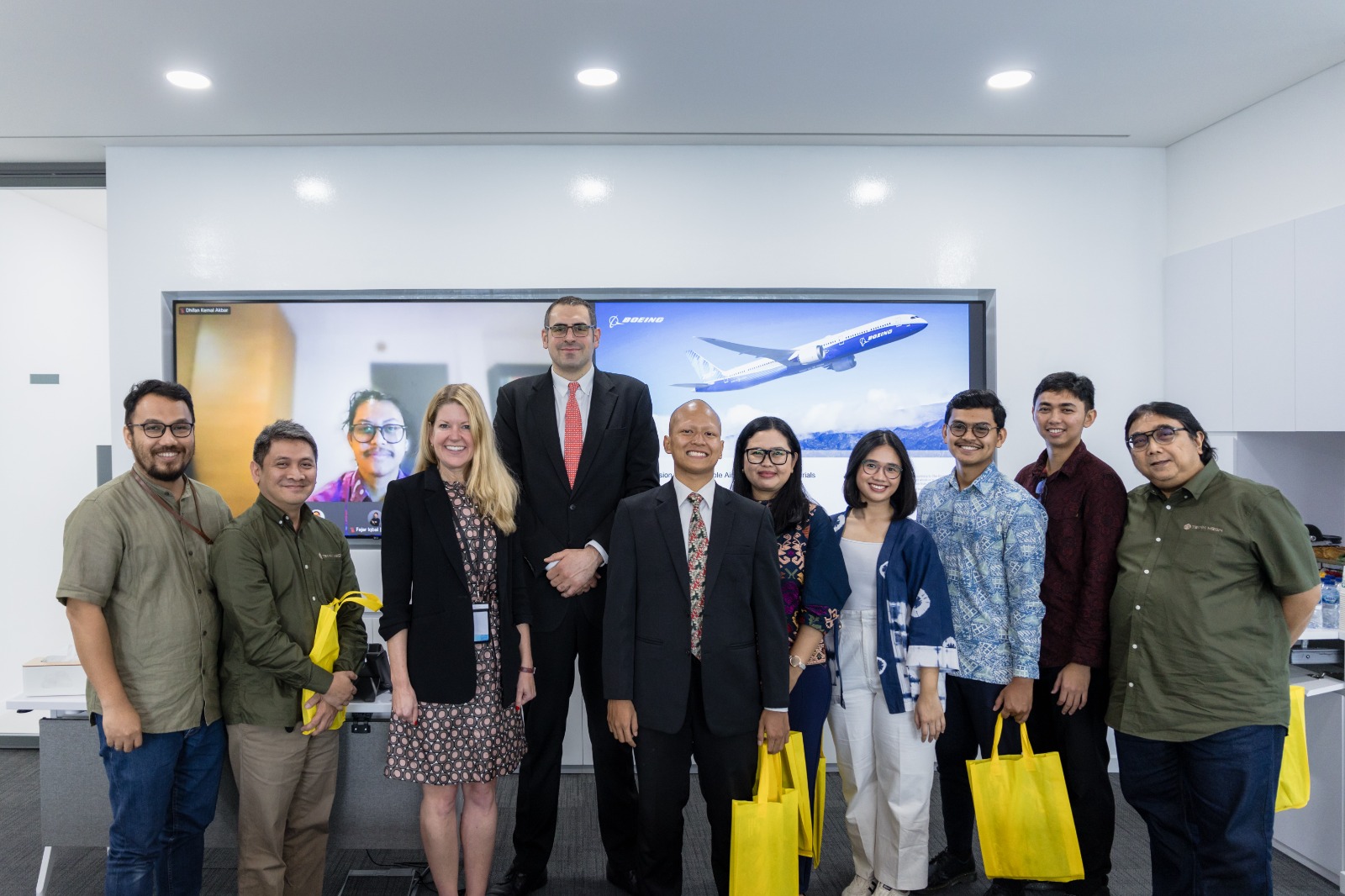The innovation of Sisal Fiber as an environmentally friendly alternative material for aircraft interiors by five alumni from the Faculty of Engineering at the University of Indonesia (FTUI) has captured the attention of Boeing Indonesia. On Tuesday (19/12), M. Soultan Aliefiansyah, Revaldy Agatha Putra, Yasmine K. Siregar, Josiah Enrico S, and Dhifan Kemal Akbar, who attended the meeting virtually via Zoom, responded to Boeing Indonesia’s invitation for further discussion.
In this meeting, the five alumni, part of the KUTECH ENGINEERING team, were accompanied by the Secretary of the Department of Mechanical Engineering, Dr.-Ing. Mohammad Adhitya, S.T., M.Sc., Professor of DTM FTUI, Prof. Dr. Ir. Wahyu Nirbito, MSME., DTM FTUI lecturer Dr.-Ing. Ridho Irwansyah, S.T., M.T., and Public Communication and General Administration Manager, Tikka Anggraeni, S.Sos., M.Si., CPR.
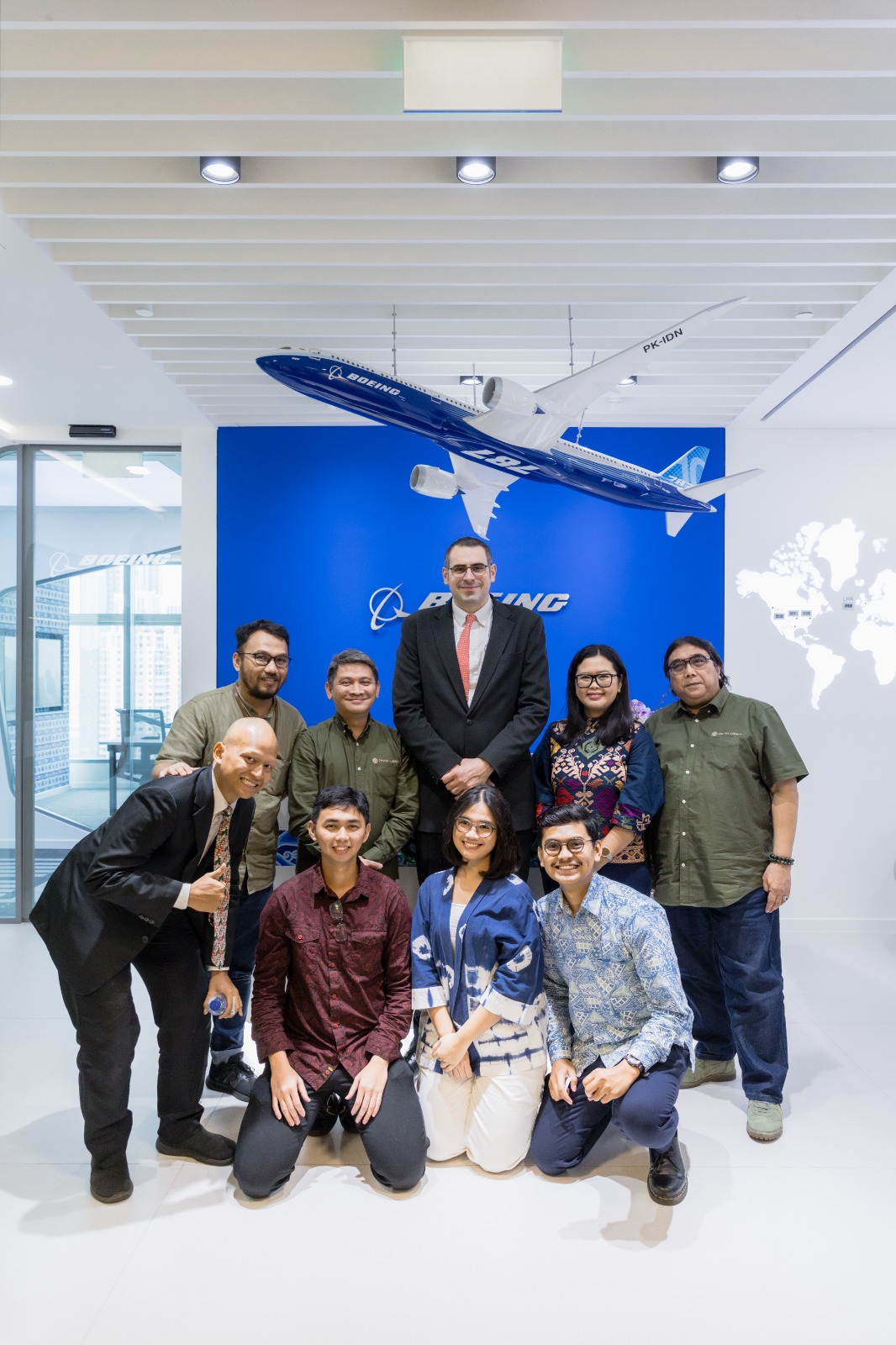
From Boeing Indonesia, attendees included Zaid Alami, Boeing Country Managing Director for Indonesia, Nell Breckenridge, Boeing Country President for Southeast Asia and Taiwan, Cynthia Lim, Chief of Staff Boeing Southeast Asia, and all employees of PT Boeing Indonesia.
This visit was made in response to Boeing’s invitation to present the innovation developed by the KUTECH ENGINEERING team – a sustainable material for aircraft. During the visit, the KUTECH ENGINEERING team gave a presentation to the leaders and employees of PT Boeing Indonesia. The innovation they developed involves the use of natural sisal fibre as an alternative material to replace carbon and glass in the aircraft’s interior, making it more environmentally friendly.
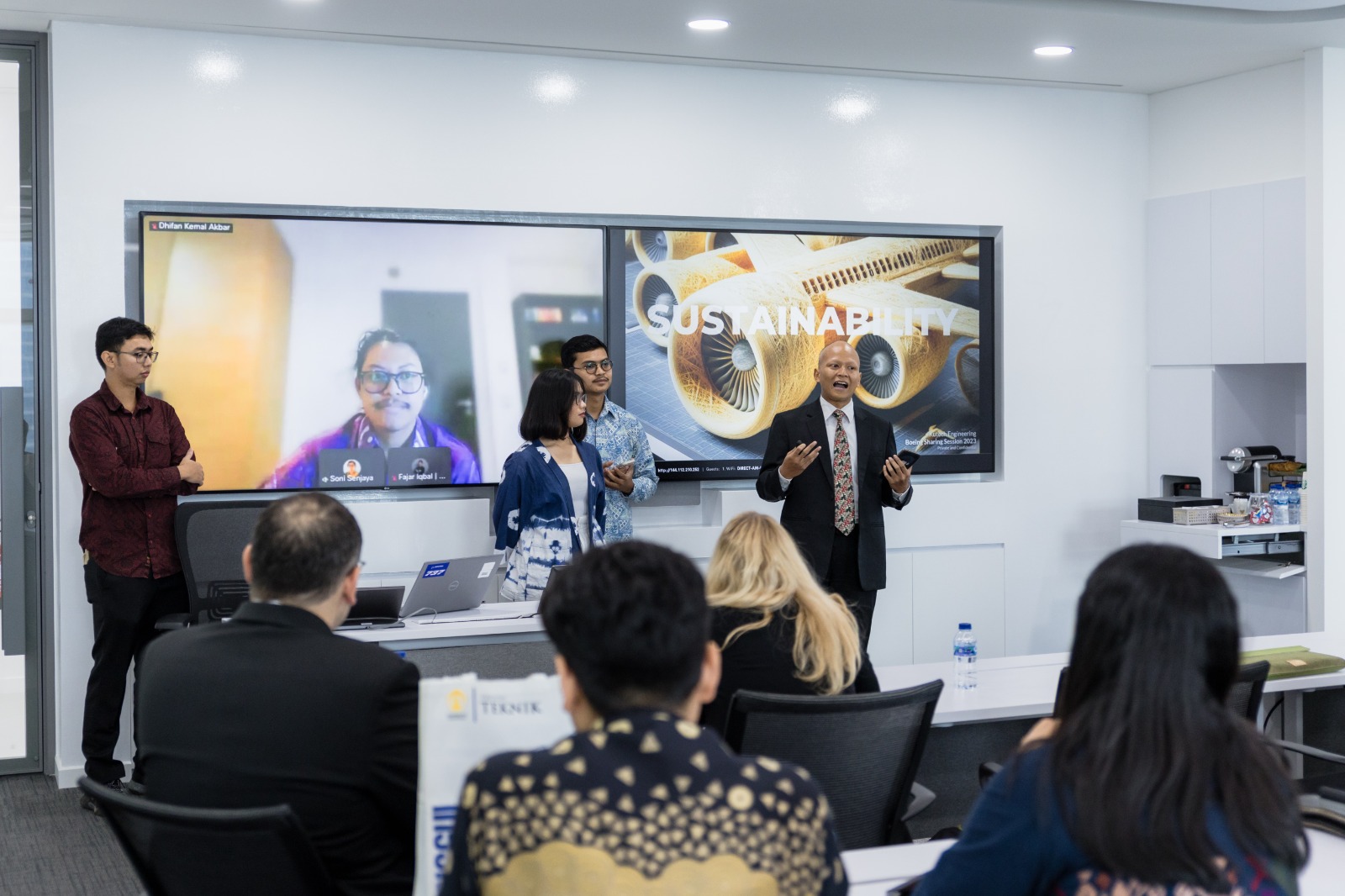
“Generally, the materials used in aircraft interiors are not sustainable. For example, synthetic fabric on seats, aluminium on the floor, composites on the top, and plastic on the walls. These products require high energy in their production, and their material properties hinder recycling. Therefore, we are trying to develop renewable technology, and sisal fibre has the potential to be used as a material in the aircraft and automotive industries. This natural material has the potential to reinforce polymer composites,” stated Josiah at the beginning of his presentation.
Sisal fibre is a natural fibre derived from the leaves of the sisal plant, scientifically known as Agave sisalana. The sisal plant originates from the Yucatan Peninsula in Mexico but is now cultivated worldwide, including in Africa, Brazil, and China. This fibre is highly potent, with advantages such as strength, resistance to high salt levels, renewability, and environmental friendliness.
“Compared to other natural and synthetic fibres, Sisal fibre is known for its durability and strength. This fibre is very suitable for aircraft interiors because it has other characteristics such as heat resistance, versatility, and durability,” said Dhifan.
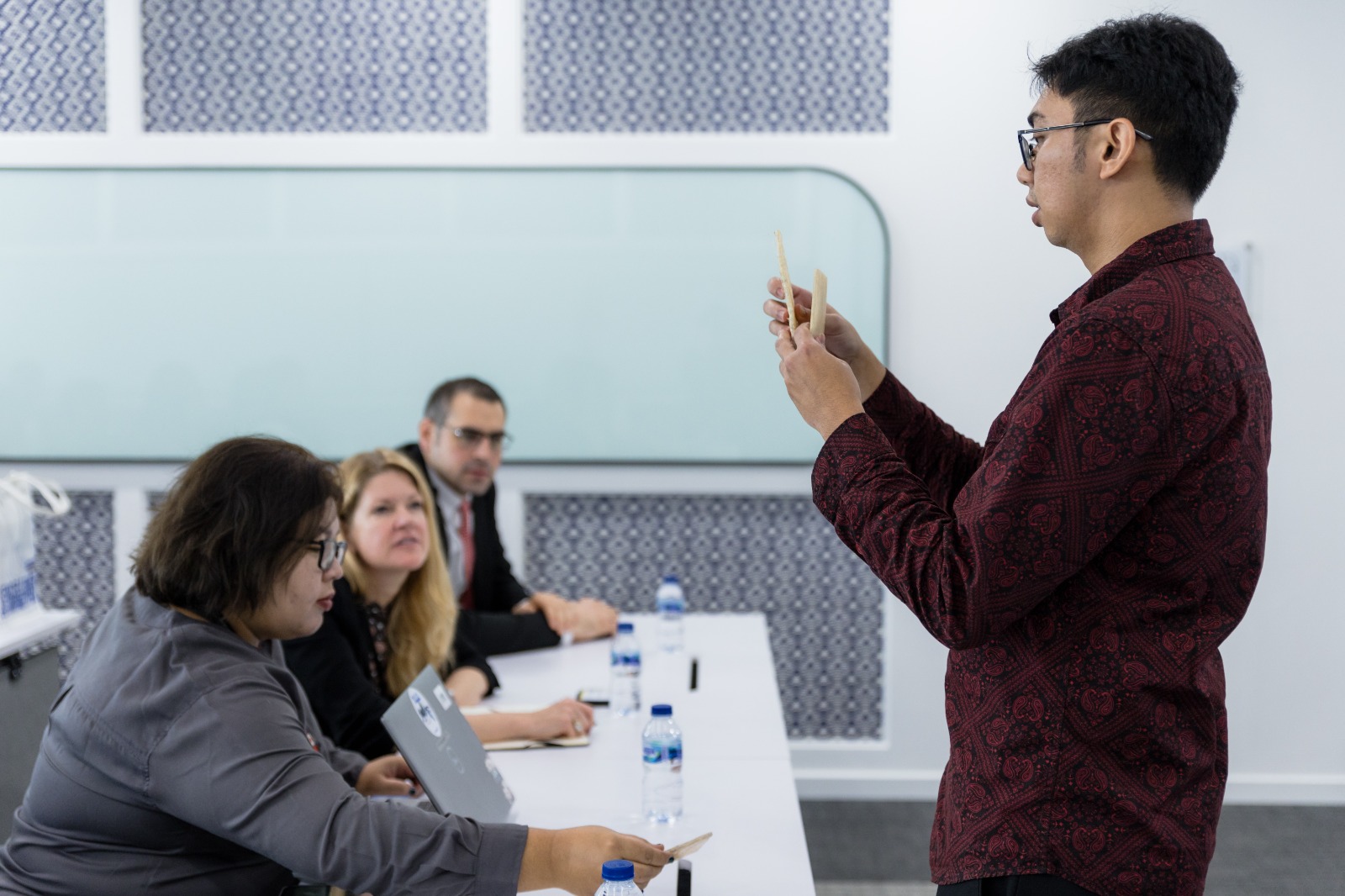
Other team members also ensured that this material complies with standard regulations for aircraft material usage. The regulations they adhere to include 14 CFR Part 25.853, which specifies material requirements for interiors, and AC 20-107B for composite aircraft structures.
The presentation by the KUTECH ENGINEERING team received enthusiastic feedback from the Boeing Indonesia team. “The innovation presented is truly remarkable. I hope what has been developed by FTUI alumni can be further developed and utilized by the aviation industry to help reduce the carbon footprint of the aviation industry in the future.”
FTUI Dean, Prof. Dr. Heri Hermansyah, S.T., M.Eng., IPU expressed his gratitude to Boeing Indonesia for their support and attention to the innovation developed by the KUTECH ENGINEERING team. He hopes that this meeting marks the beginning of closer collaboration between FTUI and Boeing Indonesia. This collaboration is not only beneficial for the development of innovation but also contributes positively to the development of competent human resources ready to compete globally.
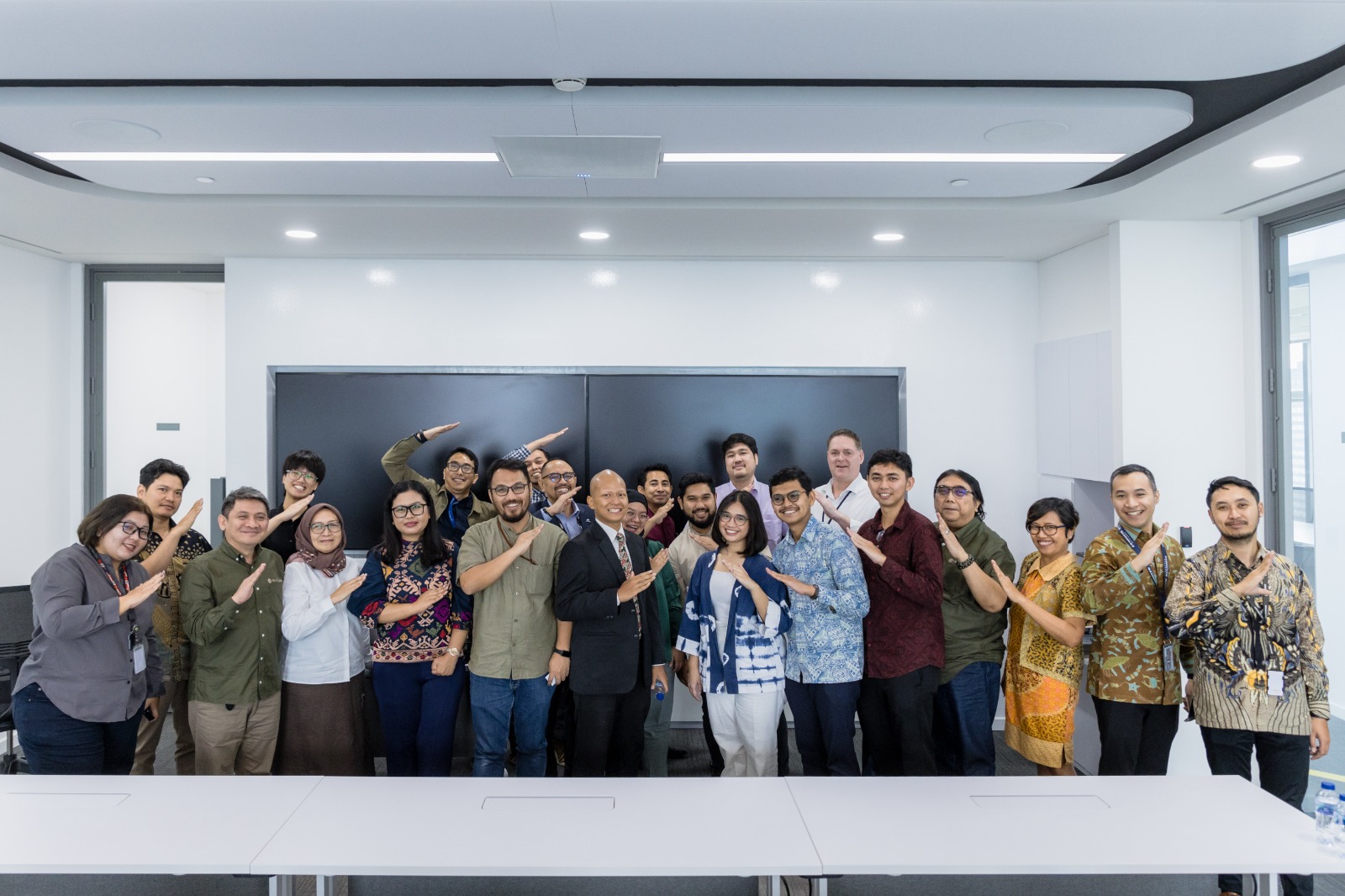
In addition to the presentation session, Zaid Alami also invited the attendees for a tour of the PT Boeing Indonesia office. He explained various features within the office, how it is themed around aircraft, and incorporates local elements as part of its design. This meeting was also appreciated as a positive step in encouraging further collaboration between FTUI and the aviation industry.
***
Public Communication Office
Faculty of Engineering, University of Indonesia

